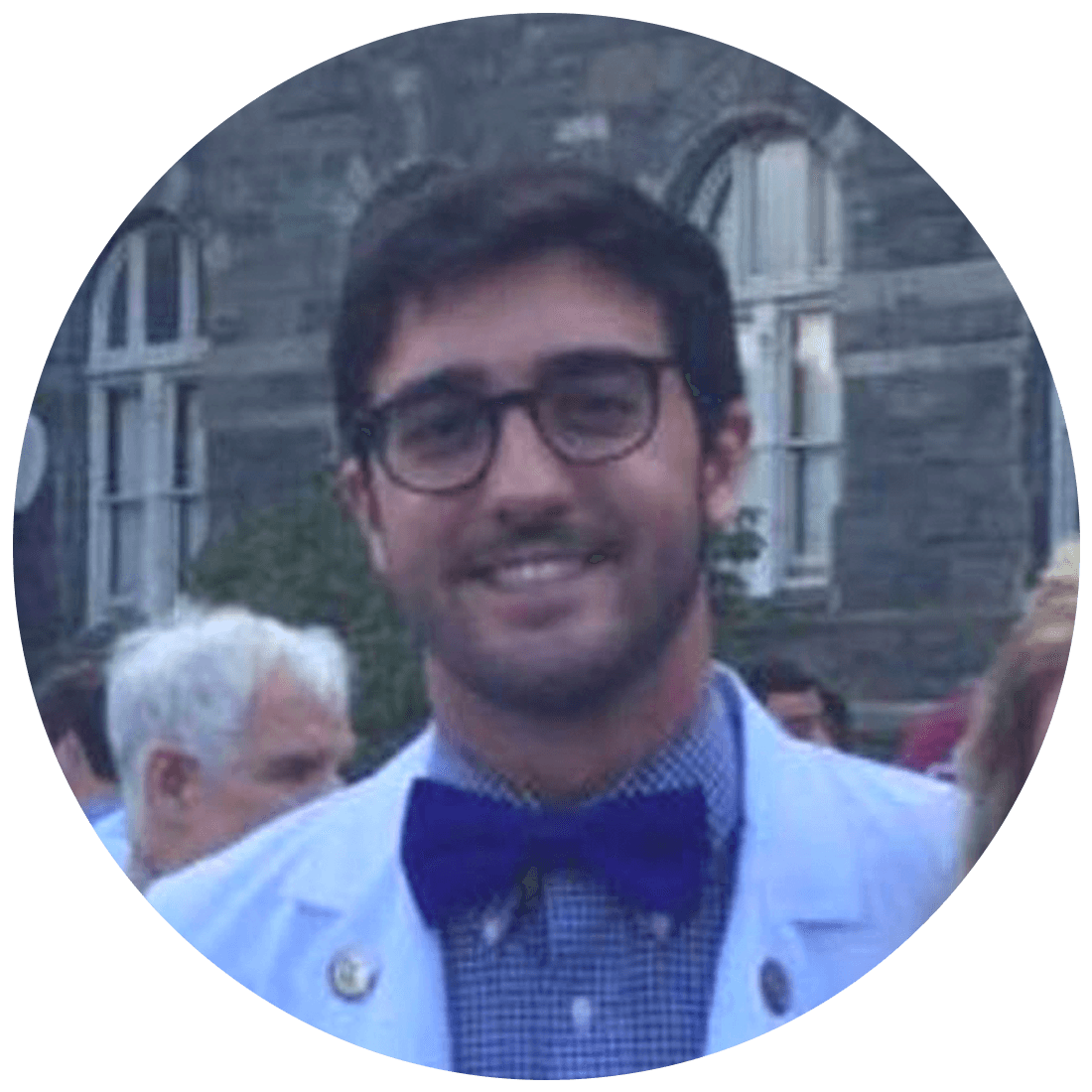NORA ROSENGARTEN

In this issue, we sat down with Tim DeVita, a current medical student in Georgetown University School of Medicine and long-time health care advocate who became passionate about addressing health care inequalities while traveling and living in Taiwan, Australia, and many other places around the world. We talked about how, in a medical system built for heteronormativity, can LGBT people get good health care? What steps can we take to advocate for ourselves, and what are medical schools doing to make sure the next generation of doctors is better equipped to address the needs of LGBT patients?
Hi Tim, thanks for making the time to do this interview!
So, for starters, what is the state of the LGBT community today? What is LGBT health and health care looking like?
Tim DeVita
It’s important to remember that the discussion of LGBT health and healthcare is a relatively recent one. In 1973, the APA voted to remove being gay or lesbian from the list of mental illnesses in the DSM. Prior to 1973, homosexuality was viewed as an illness in and of itself and was “treated” with conversion & shock therapy. This may be obvious, but another consequence of the classification was that there were almost no openly gay doctors — in fact, doctors could be fired for homosexual behavior, particularly since these acts were criminalized in many places. Shortly after, in 1980, transgender people were pathologized in the DSM under “Gender Identity Disorder.” This designation only recently changed in 2013. However it lives on in the current DSM as gender dysphoria — the “conflict between a person’s physical or assigned gender and the gender with which he/she/they identify.” As a result of pathologizing the community, there is a legacy of distrust among LGBT people and doctors that was only intensified during and with the onset of the AIDS epidemic. This is unfortunate, because a partnership between patient and healthcare provider is essential.
When you mention gay men’s medical care, provider’s minds tend to jump to STIs and the AIDS crisis. While STIs and AIDS are diseases that members of the Gay, Bisexual men, and Transgender women communities need to remain aware of and are disproportionately affected by, there are many, many other medical conditions and diseases that are underemphasized. For example: queer or lesbian women who have not given birth are far more likely to have breast cancer [also known as nulliparity]; frequent self-breast exams and mammograms are recommended. Lesbian women also have higher rates of obesity. Lesbian women and gay men have higher rates of heart disease. Gay men have higher rates of eating disorders and of anal and oropharyngeal cancers. Thus, men who have sex with men (MSM) under 26 should receive the Gardasil vaccine against HPV. In addition, emerging research is illuminating the side effects of cross gender hormone replacement therapy – estrogen could raise the risk of venous thromboembolism, and testosterone could lead to bone density issues and ovarian cancer. These disparities were all published by the U.S. Department of Health & Human Service’s Substance Abuse Mental Health Administration’s 2012 report, the Top Health Issues for LGBT Populations Information & Resource Kit.
The Economist Hosts a Talk On LGBT Access to Health Care | Source: WithTheEconomist/YouTube
Additionally, mental health issues are one of the greatest areas of concern for the LGBT community. Research on minority stress has illuminated how the chronic, daily stress that members of racial and sexual minorities experience impacts health outcomes, and even life expectancy. From a physiological perspective, some stress is goo — doing a presentation in front of your class, for example, that’s good stress. What’s bad is long-term, sustained [chronic] stress. Studies have shown that this kind of stress leads to many medical problems. This stress is the culmination of little micro-aggressions & injustices, for example, if you are live or work in an environment where it is commonplace to hear [a] slur against your demographic or if you become anxious when holding a partner’s hand in public.
Chronic stress can manifest itself into depression and suicidal ideation, which is much more common in the LGBT community than the general public. Unfortunately, such stress leads [to] unhealthy coping mechanisms as well. LGBT people have higher rates of tobacco use, alcohol use, and illicit substance use. Furthermore, the communities experience extremely high rates of intimate partner abuse — twice that of the general public. Medical professionals must be attentive to the mental and physical health of all their patients, but especially those who are part of the LGBT community. In addition, while the resilience of the LGBT community has proven time and time again to be strong, we could be better at forming spaces of community outside of bars & clubs.
It seems like LGBT people can remain invisible.
Do LGBT community members have to self-identify? How do doctors know what questions to ask?
Tim DeVita
This is actually very interesting. Usually, a patient walks into a doctor’s office and gets a clipboard to fill out a few questions. Name, date of birth, sex, medical history. For trans* patients, this is already a difficult moment. Do you write your legal name — the one that is on your insurance — even if it doesn’t correspond to your presented gender? Do you check “male” or “female?” Beyond that, doctors are supposed to ask every patient about their sexual history, including [their] partners’ sex. But many doctors often do not ask, perhaps because it makes them uncomfortable, or brings up tough conversations. But without all the information, the physician may miss a clue on what tests to run, treatments to recommend, or counseling to give.
Cecilia Chung Shares Her Personal Story | Source: Human Rights Campaign/YouTube
Think about [this] trans* man I mentioned. This man may have ovaries, and may be at risk of cervical cancer and could stand to benefit from a pap smear to screen for it. If he doesn’t feel comfortable telling his doctor about his gender identity or if he doesn’t trust his provider(s) with his genital area — which may be traumatic — the early signs of cervical cancer could be missed and he would only get treatment later, when the prognosis is worse. Providers have a responsibility to ask clinically relevant questions with empathy, and create an environment where patients do not feel they must lie about their gender identity, sexual partners, illegal drug use, smoking, etc. In addition, if sexuality and gender identity is irrelevant to what the patient is presenting with, those aspects of the patient’s health should not be emphasized. For example, if a trans* woman shows up with a broken arm, questions regarding her genitals are inappropriate. Every bit of information is essential to good health care, but many doctors are afraid to talk about gender and sexuality.
How are doctors trained to address the needs of LGBT patients?
Tim DeVita
That’s a great question. The first thing to note is that training varies heavily in different medical schools. More and more, medical schools are targeting the needs of LGBT patients in their curriculum. Some doctors will list on their resume or website that they are “LGBT certified,” which suggests that they have undergone training specifically on LGBT health issues. In addition, the Human Rights Campaign has a designation for hospitals that provide adequate training and treatment regarding LGBT patients. Unfortunately, that does not mean that doctors everywhere are caught up on these issues.
“To Treat Me, You Have to Know Who I Am,” a mandatory LGBT training program for NYC hospitals | Source: NYC Health and Hospitals/YouTube
I remember as an undergraduate [in Georgetown University] I went to the health clinic asking for a flu vaccine. The doctor I saw, knowing only that I am gay, insisted on performing a full STI panel even though I was not asked about my sexual risk (I was in a monogamous relationship at the time) or if I had been tested recently (which I had one month prior). This kind of stereotyping is too common among medical professionals. And it isn’t only doctors who need education, it is also hospital staff. I’ve read accounts of trans* people who have gone to the ER or the hospital, only to be assaulted or attacked by hospital staff by entering the bathroom that matched their gender identity. This kind of incident only decreases the likelihood that trans* people will go to get the health care they, like everyone else, need.
Barriers to health are not unique to the LGBT community. For example, many undocumented people are too scared of deportation to seek medical care. In addition, the Tuskegee syphilis experiment has left many in the African American community rightfully wary.
How has your work at Georgetown allowed you to address issues of curriculum discrepancy?
Tim DeVita
I am proud to say that I was part of a team that assessed my medical school’s preclinical curriculum for its LGBT health competency. We based our assessment on competencies that the Association of American Medical Colleges published, as well as medical schools that are leaders in the field. When we found gaps in the curriculum, I wrote slides to fill the deficiencies.
Luckily, many student groups backed our team’s efforts. Eventually, my medical school’s committee on medical education was very receptive to the assessment and approved the additions we suggested. They are now integrated into various parts of the preclinical curriculum.
I know when you lived in Australia you were a clinical research coordinator in a clinic that gave out Pre-Exposure Prophylaxis (PrEP).
What is PrEP? How does it work? And what was your experience working in the clinic?
Tim DeVita
PrEP is a daily pill that has been approved by the FDA to decrease the risk of becoming infected with HIV if you are HIV- and high risk. The pill is a combination of two drugs that are used in the treatment of HIV; they help prevent the virus from replicating. This is a powerful new tool that we’re using to fight the now 35-year HIV epidemic. For people at high risk of getting HIV — people with inconsistent condom use, people in a serodiscordant relationship, injection drug users, and sex worker — this is an effective safety net.
I loved my experience working in the clinic. Australia’s response to the HIV epidemic is an example that the U.S. could aspire to. Their rates of HIV are much lower due to early and aggressive intervention — there are clean needle services, HIV medications are provided free of charge for everyone covered in their national insurance, and STI screening & treatment is available for everyone in Australia. The state of New South Wales, where Sydney is located, even has a plan to eliminate HIV transmission by 2020.
Vintage Anti-Discrimination AIDS Awareness Ads from Australia | Source: DJBuckNaked/YouTube
One of the biggest limitations of the drug [though] is its cost. Without health insurance, it runs around $900 for a 30 day supply. However, with physician pre-approval, many insurance companies cover most of the cost. In addition, the pharmaceutical company Gilead has a system you can apply for to reduce copays. In some cities, there are programs to subsidize the drug as well.
I think it’s also important to note that there is also Post Exposure Prophylaxis (PEP). This is a stronger regimen of HIV medications that can be used after someone has a potential HIV exposure [such as by] a needle stick or unprotected sex. It is more effective if you start the regimen as soon as possible after the exposure, and [it] must be started within 72 hours of the exposure to be effective.
What advice would you give to LGBT people as they navigate doctors’ offices and hospitals? How can they advocate for themselves?
Tim DeVita
The best advice I can give is: give yourself agency. You are your own best advocate. Know what your risks are, ask your doctor, and be as informed as possible. Choose a primary care physician who you trust and who is a partner with you. Most of what happens to keep you healthy goes on day to day: exercise, healthy eating, not smoking, etc. Make sure your doctor is someone you can be honest with about your life.
Thank you so much for your time!
Tim DeVita
He is a second year student and health justice scholar at Georgetown School of Medicine. He holds a graduate certificate in LGBT Health Policy & Practice from the George Washington University. He is interested in entering an internal medicine residency upon graduation, and hopes to engage with global health.






